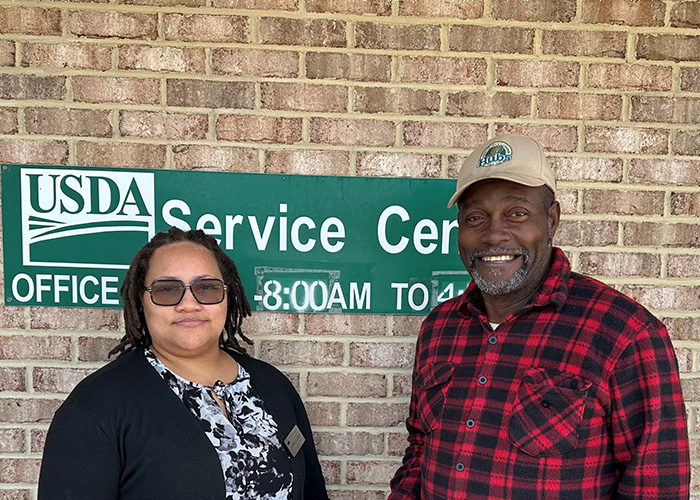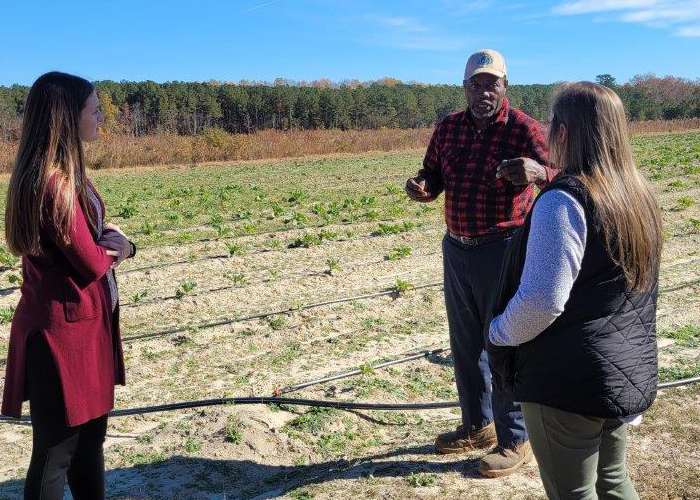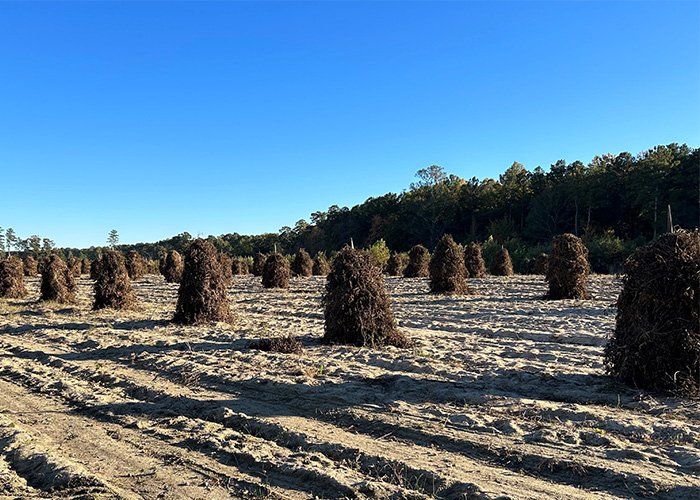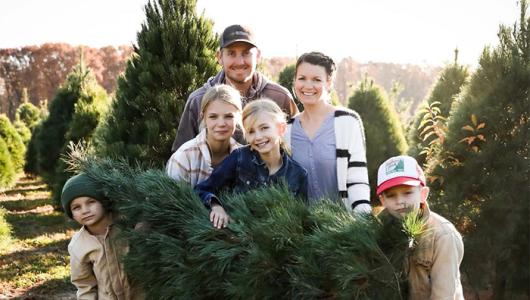This Friday meet Elisha Barnes, a fourth-generation farmer from Southampton County, Virginia. Elisha's love of agriculture began while working in his family's peanut fields at the age of six. He purchased his own farm in 1989 where he continues to grow peanuts, along with soybeans, corn, and a variety of produce, only stopping to rest on rainy days and Sundays.

Getting Started
At 15, Elisha wanted to quit school to become a full-time farmer, but his father insisted that he finish his formal education. His father was unable to finish school and wanted his children to have the opportunities that he didn’t. Elisha went on to finish school and later graduate with a degree from Nashville Auto Diesel College. His degree has paid off, allowing him the ability to work on and fabricate to fit the needs of his operation.
Over the years, programs from USDA’s Farm Service Agency have helped him invest in his operation and protect his bottom line. “The Farm Service Agency became a partner for me, with technical and financial assistance,” he said.

To help with the costs of running his operation, Elisha applied for and received a Farm Operating Loan. Operating loans are a valuable resource to start, maintain, and strengthen a farm or ranch, and can be used to purchase livestock, seed, and equipment. It can also cover farm operating costs and family living expenses while a farm gets up and running.
He also enrolls his peanuts, soybeans, and corn in the Agriculture Risk Coverage and Price Loss Coverage programs, which provide income support to protect farmers from substantial drops in crop prices or revenues.
Passion for Peanuts
Elisha grows peanuts because of his history and passion for it. “My dad said if you don’t have passion for a thing, it’s just a thing,” he said.
He was raised curing peanuts through shocking, which produces a sweeter tasting peanut as opposed to a heat dried peanut. When he started his own operation, Elisha tried heat drying peanuts, a method that had become popular, but realized it was too costly for him as small-scale farmer. As a result, he went back to the curing method he was raised knowing - shocking. Today, he sells his raw shocked peanuts to Hubs Peanuts, where the Single Origin Redskin Peanuts sell out every year.

Aside from peanuts, he also grows watermelon, cantaloupe, sweet potatoes, tomatoes, collards and other crops, most of which he donates through his partnership with The Foodbank of Southeastern Virginia and the Eastern Shore. Elisha is proud of the work he does, allowing him to be able to give back to his community by doing what he loves.
More Information
Visit local farms, ranches, forests, and resource areas through our Fridays on the Farm stories. Meet farmers, producers and landowners who are working to improve their operations with USDA programs.
USDA offers a variety of risk management, disaster assistance, loan, and conservation programs to help producers weather ups and downs in the market and recover from natural disasters as well as invest in improvements to their operations. Learn about additional programs.
For more information about USDA programs and services, contact your local USDA service center.
For more information about this story, contact Diane Lenoir-Giles, the communications coordinator for FSA in Virginia.


